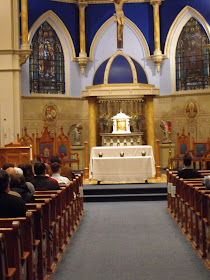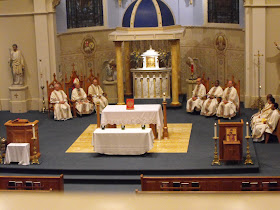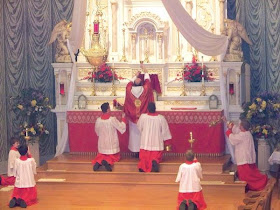At
the time, we had a horse – a mare that was well along in her pregnancy, and
everyone was looking forward to the blessed event. The joke involved making
Dusty believe that the foal was about to be born on March 31 (a day early for "April Fools", but what the heck).
Ruthie
enlisted the aid of her dad, because she knew Dusty would be sure to believe
the joke if she heard it from Jerry. So when Dusty made her predictable
dinner-time phone call (neither girl had a cell phone or a Face Book account
back then!), Jerry answered the phone, saying, “Ruthie’s outside with the horse.
It looks like the mare is going to have her foal tonight, and it’s very
premature, so I need to call the vet. We’ll call you later.”
Ruthie
thought this was hilarious – particularly because Jerry told the story, and
Dusty bought it, hook, line, and sinker. I suggested that Ruthie wait about 5
minutes, then call Dusty and admit it was a joke. But Ruthie wanted to wait longer
so that she could call her friend and say that the foal had indeed arrived,
describe it – milk the situation for all it was worth – and then say “April Fool!” I grew even more
uncomfortable, but didn’t insist on curtailing the joke.
An
hour or so later, Ruthie made the requisite phone call, built Dusty up to a
fever pitch over the “new foal,” and then sprung the punch line. Dusty promptly
burst into tears. Ruthie made a hasty apology and got off the phone. But that
was not the end of it by any means.
Ruthie
made repeated verbal apologies to Dusty, and Jerry had her relay one for him. I
excused myself from the apology department, refusing to take responsibility for
any of it.
For the bulk of the day on April 1st, Ruthie carried around a sign which read, “I hate April Fool’s Day.” I agreed with her. The whole affair just had a bad feel to it. We had all been made fools.
For the bulk of the day on April 1st, Ruthie carried around a sign which read, “I hate April Fool’s Day.” I agreed with her. The whole affair just had a bad feel to it. We had all been made fools.
A
week later, the pastor of our parish and the chancellor of our diocese played a
late April Fool’s prank on me. I was
the parish secretary at the time, and the priests were on their after-Easter
retreat. My pastor had the chancellor call me at the office and tell me that
the bishop was planning to move the chancery offices back to Baker City. (As I
have explained elsewhere, the Cathedral of our diocese is in Baker City, but
the chancery is 5 hours away in Bend.) I wanted to be ecstatic, but I was
cautious, and I said to the chancellor five
times, “You’re kidding, right? This is an April Fool’s joke, right?” He
assured me five times that he was
quite serious, and he needed me to provide him with some information about the physical space of the office building. I believed him; I bought the story hook,
line, and sinker. Then, an hour later, a parishioner who was in on the joke
came in to tell me “April Fool’s!” I was livid – not so much because the story wasn’t
true as because I’d been made to look and feel like a fool, and my pride was
severely damaged.
The
parallels with Ruthie’s experience with Dusty were painfully obvious. Without
help, the pastor would never have been able to fool me with a story about the chancery
offices moving to the Cathedral, and he knew it. So he enlisted the aid of a
credible authority – the Chancellor of the Diocese. As happened with Dusty, my
emotions were built up to a fever pitch, and then rudely and crudely crushed. And
as with Dusty’s mother’s incredulity about Jerry’s involvement, I could not
believe that the chancellor would consent to taking part in the hoax.
The
next day, I wrote a note of apology to Dusty and her mother, invited Jerry and
Ruthie to add notes of their own, and put it in the mail. I knew that a written
apology would carry more weight and sincerity than a verbal one received over
the phone. My experience with the pastor and the chancellor helped me to acknowledge
that I did owe Dusty and her mom an apology, because I could have – and should
have – put a stop to that joke at any time.
I
learned quite a bit from these two jokes. Some of the things I “learned” were simply
reminders of things I already knew. I was reminded that April Fool’s jokes are
funny primarily to the perpetrators, and not at all to the victims. And both of
the “jokes” I have described here amounted to nothing more than lies. When a
friend lies to you, you feel betrayed, not amused. It doesn’t matter that the
friend gleefully announces “April Fool!” after the fact. It still feels like a
betrayal. And even though it’s often one’s pride that takes the biggest hit, I
think that even a humble soul is dismayed by the betrayal of a friend.
Similar
feelings of betrayal result when the perpetrator of the prank is someone who
holds a position of authority, and uses that position to promote a deception. I
did not have a personal friendship with the chancellor of our diocese; I barely
knew him. I accepted the authority of his position as chancellor as
confirmation of the veracity of his statement. He used that authority to fool
me, and in the process taught me a lesson he certainly did not intend: I
“learned” that the title “Chancellor” has no meaning in terms of the bearer’s
credibility, honesty, or integrity. I hope that I can “un-learn” this lesson. However,
every person in a position of responsibility and authority should remember that
misuse of one’s office can lead to mistrust by the very people over whom one
has authority.
At
any rate, I was so angry at those two priests that, for a time, I did not want
to have anything to with any priest. For
a while, I was inclined to judge all
priests as rotten liars who were just out to hurt me. It helped me
understand why some people leave the Church over a single bad experience with one
priest.
When
we are fooled, the tendency is often to seek revenge – to play a bigger and
better joke on the one who “got” you. Believe me, I came up with a number of
“inspirations” calculated to return the favor to my pastor and the chancellor. But
Jesus taught us the Golden Rule for a reason, and my understanding of that rule
precluded my seeking revenge. If I had tried to redeem my pride by playing a
joke on them, I would not, in the long run, have made myself feel any better. I
would have simply escalated the distrust that we had of each other. If I
succeeded in “fooling” them in some way, I would increase not only their distrust of me, but my distrust of them: I’d be waiting and watching
vigilantly for their attempt at
revenge. Frankly, I didn’t need the stress.
A
final lesson – or maybe it’s another reminder – to be taken from these “jokes”
and their consequences is that, because we are all human, any of us can make an
error in judgment. This can happen whether you are a priest or a chancellor, or
the director of a 911 Center (my husband’s job at the time), or the parish
secretary. And so, forgiveness is the order of the day. It’s not an easy order to follow. But it was the only solution, the only
resolution to the tension that had come to exist between these two priests and
me.
I
pray God always gives me the strength to forgive those who hurt me, and the
insight to understand why it is so difficult…because I really want those I hurt
to forgive me, too.













